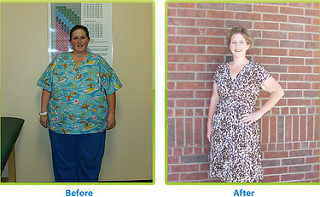The 12 Steps of Recovery from Chronic Dieting
Last week I invited you to welcome in this year by stopping your dieting. I gave 2 compelling reasons why diets don’t work for lasting weight loss, set point and water balance. This week I’m going into more detail on the first step toward “diet recovery”: Admit you have needs that haven’t been met.
Every one of us is born with a set of needs that is unique to them. This is called our temperament. We all have the same basic needs, but the priority given to each need and preference varies from person. Much of our temperament is determined by genetics, and some is formed as we live our life…so some is the result of nature and some the result of nurture. To a large extent it is believed that the attunement to our needs by our primary care giver at birth determines our responses when our needs are not met. For example, the woman whose mother or father was emotionally distant may use other sources to get her needs for nurturing, love, and connection met. In time she may discover that food seems to soothe the pain of these needs not being met by her parent(s). Food is constant, non-judgmental, and often, easily available (unlike her parent). Or consider the boy that goes “unseen” by his alcoholic family. He devises a way of using food to numb his rage and pain. Or the little girl who grew up as “the apple of her father’s eye”, whose needs were met until she began puberty when her body began to change, and her father grew distant and uncomfortable around her. She begins to restrict her food, unconsciously thwarting her natural growth into maturity through dieting or anorexia.
Admitting you have needs that have not been met is the first step of 12 for a very good reason; unless you are in touch with the needs that you are currently meeting with food, dieting, or binging, you have very little chance of permanently breaking free of the cycle of weight loss/ weight gain. Some of the needs met by food include but are not limited to: autonomy, freedom, choice, comfort, connection, reassurance, predictability, emotional safety, sharing, community, family, and pleasure. Some of the needs met by dieting include: autonomy, freedom, choice, individuality, self-worth, self-respect, purpose, acknowledgement, being liked, respect, friendship, companionship, acceptance, aesthetic, validation, exercise and movement. You can see how some of these needs overlap, but I hope the prevailing point is that there are a lot of needs met by both dieting and not dieting. The goal is to acknowledge first that your needs are legitimate…ALL OF THEM. For some people this is the most difficult part. Many of us feel undeserving of getting our needs met. Maybe you were told you have too many needs i.e. “Don’t be so needy.” Maybe you were told to submit your needs by putting the needs of others first i.e. “Don’t be so selfish. Help your mother.” Maybe you weren’t even aware that you have needs! That’s not so uncommon.
So, are you nourishing yourself lovingly with healthy foods and healthy relationships? If so, you’re probably not the chronic dieter or someone with an eating disorder. For the rest of us, the challenge becomes twofold: 1) being able to know your needs, 2) figuring out how to get them met. The second part may require trial and error, but trust me; it’s worth putting in the time. Think about all the time, energy, strength (willpower) and money you have invested throughout your life in dieting and weight loss. Imagine investing equal time, energy and strength into getting your needs met! Spend the money too if you need professional assistance. What is stopping you? What scares you about doing this? You are worth it! For all the people you love and for yourself, why not make this investment in you? What would change as a result? Some of you secretly fear that if you were to become healthy (a person that you like, someone whom you admire) your current relationships would no longer serve you, and then where would you be? I understand this fear, but it’s fear that keeps us stuck in old beliefs and old patterns. It is love, love of self, and love for others that is our salvation.
So, to recap, here are the 12 steps to recovery from chronic dieting or eating disorders:
1. Admit you have needs that haven’t been met.
2. Seek help and support.
3. Look for answers…don’t stop until you’ve found them.
4. Look for solutions…stop submitting, stop rebelling.
5. Practice gratitude daily.
6. Develop a balanced point of view.
7. Share your stories with others…you are not alone.
8. Clear away the wreckage of your past…mourn the lost opportunities.
9. Continuously revise your life story.
10. Practice honesty and compassion for self and others.
11. Meet your needs..communicate honestly and directly.
12. Knowing that you are not powerless, food will fall into its healthful place.
Next week we will go into depth on step 2: seeking help and support. Please visit my website www.colleenperry.com for last week’s blog and for more information on this subject.
-
Green Tea - Healthy Or Unhealthy?
For several years green tea has been toted as the most beneficial b
-
Lose Weight By Walking
Aerobic (also called cardiovascular exercise) exercise is a type o
-
Tricks to Form Strong Dieting Practices for Maximum Effect
There definitely is no shortage of guida
-
Critically Imperative Tips Few Know About Boosting Your Metabolism
You can lose weight by cutting down on y
-
Weight Loss Techniques - Is Atkins Diet Safe?
The Atkins Diet has been around for ages, but it has gained significan
-
6 Bad Foods That Help You Lose Weight
You want to shed some pounds, and immediately your pers
- DON'T MISS
- Designed for All You Folks Trying To Obtain Muscle We Will Be Taking A Look At The Muscle Gaining Secrets Program
- Fat Burning Food For Powerful Natural Fat Loss
- Weight Loss Tips for Fast Weight Loss
- You Can Start To Lose Weight Today
- Women Arent The Only Ones Who Get Insecure About Their Bodies
- Simple Weight Loss Tips For The Healthy You
- The New Type Of Partner You Need To Have
- 4 Necessary Fat Loss Diet Tips
- Dieting Its Both What We Eat And How We Eat
- Weight Loss Doesnt Work




